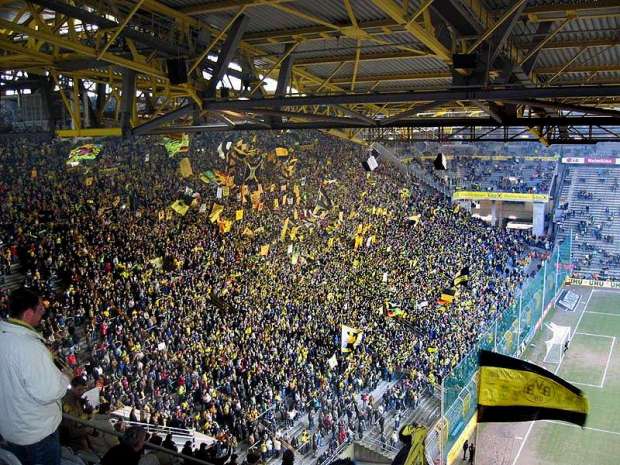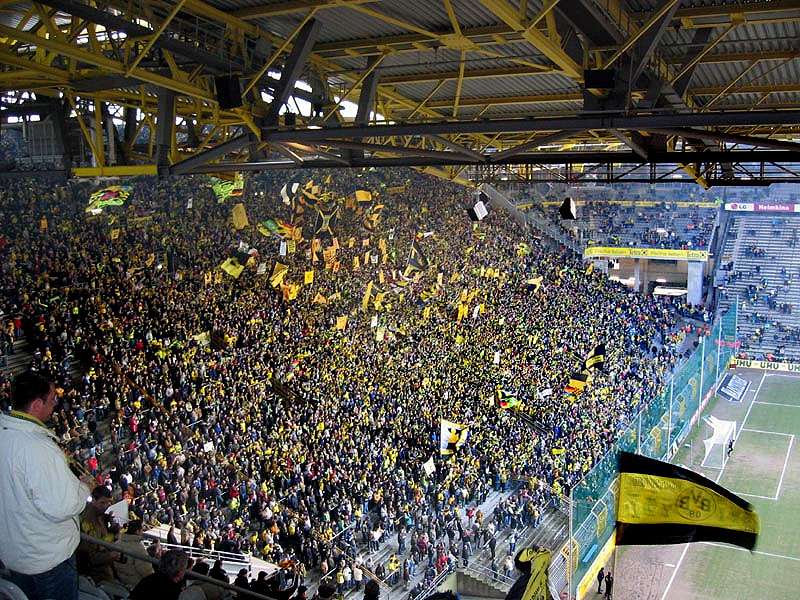 Whether you’re a football fan or part of a bigger governing body in the sport it is abundantly clear that the success of German football and its leagues are the envy of the world. There is a seemingly more relaxed feel on a Bundesliga match day and whilst these brilliantly atmospheric yet intimidating football stadiums across the country blow the whistle to kick off some major footballing action week in and week out there are clearly a number of factors and features of German football that have kept it dominant.
Whether you’re a football fan or part of a bigger governing body in the sport it is abundantly clear that the success of German football and its leagues are the envy of the world. There is a seemingly more relaxed feel on a Bundesliga match day and whilst these brilliantly atmospheric yet intimidating football stadiums across the country blow the whistle to kick off some major footballing action week in and week out there are clearly a number of factors and features of German football that have kept it dominant.
Ticket prices are always a talking point of controversy in the Premier League in particular. The cost to go to a high profile game somehow manages to creep up in price each and every season frustrating those fans who simply cannot afford to regularly go to support and cheer on their home side. It is getting to be that these revenue hungry clubs are beginning to alienate many local fans and supporters due to these constant ticket price hikes. But the Germans have a much different approach.
According to a very interesting BBC study it appears that the cheapest season ticket at Borussia Dortmund was just £160. That’s compared to English Premier League side Arsenal where a season ticket is in excess of £1000. A standard match day ticket in the Premier League can be upwards of around £28 whilst in the German Bundesliga the lowest price tickets fall into the region of just over £10. It’s a staggering difference and one that begs the question, why such an obvious inconsistency?
German clubs traditionally concentrate their revenue generation on elements of sponsorship and other commercial deals. Back in 2011 German side Bayern Munich earned around £300 million in revenue whilst Premier League counterparts Manchester United raked in around £320 million. Now whilst those two figures are fairly similar the fact of the matter is that Bayern received more than half of that revenue from commercial deals whilst Man U only pulled in 37% of their total revenue from such deals meaning that fans were making up the rest of the income.
German sides in the Bundesliga nearly all run at a profit with English top-flight sides at a loss which can be accounted to the huge and often unnecessary expenditure put on player wages and international transfers. German teams often concentrate their efforts more on young talent coming up through the system. It’s like a well-oiled all-round business setup and quite frankly that is what it is, a business. But it’s a successful business that focuses its attentions on the future, the fans and the football and that is something that the Premier League is in danger of leaving behind.










 Whether you’re a football fan or part of a bigger governing body in the sport it is abundantly clear that the success of German football and its leagues are the envy of the world. There is a seemingly more relaxed feel on a Bundesliga match day and whilst these brilliantly atmospheric yet
Whether you’re a football fan or part of a bigger governing body in the sport it is abundantly clear that the success of German football and its leagues are the envy of the world. There is a seemingly more relaxed feel on a Bundesliga match day and whilst these brilliantly atmospheric yet 







